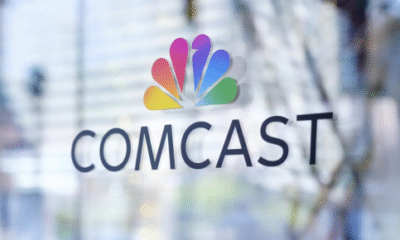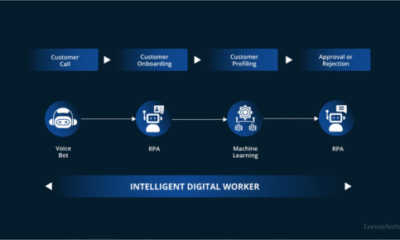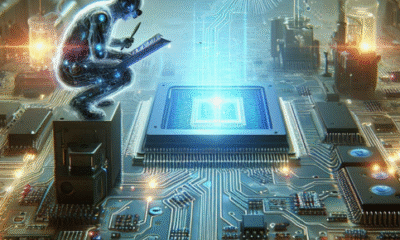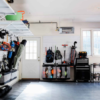Technology
A Comprehensive Guide to Beverage Equipment – Key Considerations for Your Business
In the food and beverage industry, the right beverage equipment is critical to providing high-quality drinks, improving efficiency, and delivering excellent customer service. Whether you are running a café, restaurant, bar, or any business that serves drinks, having the right tools is essential to meet customer demand and streamline operations.
In this article, we’ll take an in-depth look at various types of beverage equipment, the factors to consider when selecting them, and how they can enhance your business’s success.
Types of Beverage Equipment
The type of beverage equipment you need depends on the drinks you serve and the scale of your operations. Here are some of the most common categories of equipment that businesses require to serve beverages efficiently and professionally.
1. Coffee Equipment
For coffee shops, cafés, and restaurants that serve coffee, the importance of quality coffee equipment cannot be overstated. A reliable espresso machine, drip coffee maker, or French press can ensure your customers receive the perfect brew every time. When selecting coffee equipment, factors such as ease of use, speed, and the ability to maintain consistent flavor profiles are key considerations.
If you serve a high volume of coffee, commercial-grade espresso machines with automatic grinders and milk frothers can be a valuable investment. This type of beverage equipment allows baristas to prepare beverages quickly without sacrificing quality.
2. Juice and Smoothie Equipment
For businesses focused on health-conscious consumers, having the right juice and smoothie equipment is crucial. High-powered blenders and commercial-grade juicers are the go-to tools for producing fresh juices, smoothies, and other beverages made from fruits and vegetables. These machines need to be powerful, durable, and capable of handling a continuous workload without overheating.
Cold press juicers are becoming increasingly popular as they help preserve the nutrients and natural flavors of the ingredients. If you’re planning to offer fresh juices, investing in a cold press juicer can set your business apart in terms of quality and taste.
3. Beer and Bar Equipment
For bars, pubs, and restaurants serving beer and cocktails, beer dispensing systems, kegerators, and cocktail mixing stations are essential beverage equipment. A kegerator allows you to store and serve beer from kegs, which can be more cost-effective than bottles or cans while providing customers with the fresh taste of draft beer. Additionally, cocktail stations equipped with ice makers, blenders, and mixing tools can make a bartender’s job easier and more efficient.
Draft beer systems should be carefully chosen based on the types of beers you plan to serve and the volume of customers you expect. Many systems offer multiple taps, allowing for a wide variety of beer options to cater to different tastes.
4. Water and Ice Dispensers
Another essential category of beverage equipment is water and ice dispensers. These machines provide purified drinking water and fresh ice, which are indispensable for any establishment that serves drinks. Many businesses opt for combination units that offer both ice and water to save space and improve efficiency.
If your business serves cocktails or cold beverages, an ice machine is a must-have. There are different types of ice machines, such as cube ice makers, flake ice machines, and nugget ice machines, each suitable for specific beverage types. Choose the right one based on the types of drinks you serve and the aesthetic you wish to achieve.
5. Dispensers for Soft Drinks
Fast food outlets, restaurants, and convenience stores often use soft drink dispensers as part of their beverage equipment. These machines allow for easy and quick dispensing of a variety of carbonated drinks, making them a popular choice for high-traffic locations. Soft drink dispensers can be combined with ice dispensers for convenience, ensuring that customers can get a chilled drink with minimal wait time.
6. Tea Brewing Equipment
For businesses specializing in tea, having the right tea brewing equipment is essential. Whether you’re serving loose leaf teas, tea bags, or iced tea, there are various tools available, including commercial-grade kettles, tea brewers, and hot water dispensers. These pieces of beverage equipment make it easy to prepare large quantities of tea quickly and consistently, ensuring customers receive a high-quality product.
Key Factors to Consider When Choosing Beverage Equipment
Investing in beverage equipment can significantly impact your business’s success, but it’s important to choose wisely. Here are some key factors to consider before making a purchase.
1. Capacity and Speed
When selecting equipment, consider the size and capacity of the machine in relation to the volume of drinks your business serves daily. High-capacity machines are better suited for busy establishments, while smaller machines may be adequate for lower-demand operations. Speed is also a crucial factor; equipment that can quickly produce beverages will help you serve more customers in less time, improving overall efficiency.
2. Durability and Reliability
Investing in durable, high-quality beverage equipment will save you time and money in the long run. Commercial-grade machines are built to withstand heavy use and last longer than residential-grade options. Look for equipment from reputable brands known for reliability, and be sure to read reviews and ratings to get a sense of how well the equipment performs over time.
3. Energy Efficiency
Energy-efficient equipment can help reduce operational costs and minimize your business’s environmental footprint. Many modern machines are designed to be more energy-efficient while maintaining performance, which can be a significant benefit for businesses looking to cut down on utility expenses.
4. Ease of Use and Maintenance
The ease of operation is another important consideration. Complex equipment can slow down staff and lead to longer wait times for customers. Choose beverage equipment that is user-friendly and requires minimal training to operate. Additionally, easy-to-clean equipment can reduce downtime and improve sanitation, ensuring that your establishment maintains high hygiene standards.
5. Customization and Flexibility
For businesses that offer a wide variety of drinks, customizable beverage equipment can be a valuable asset. Machines that allow you to adjust settings for different drink types or sizes provide greater flexibility in your menu offerings. For example, some coffee machines let you change brewing strength or temperature, catering to customer preferences.
Conclusion
Investing in the right beverage equipment can make a world of difference for your business. From coffee shops to bars, having the right tools ensures you can serve high-quality beverages efficiently, meeting customer expectations and driving repeat business. By considering factors like capacity, durability, energy efficiency, and ease of use, you can select equipment that aligns with your business goals and operational needs.
Ultimately, the right beverage equipment can help improve service speed, enhance the quality of your offerings, and increase customer satisfaction. Whether you’re upgrading existing equipment or starting from scratch, make informed decisions to ensure your business thrives in the competitive beverage industry.
4o

















You must be logged in to post a comment Login